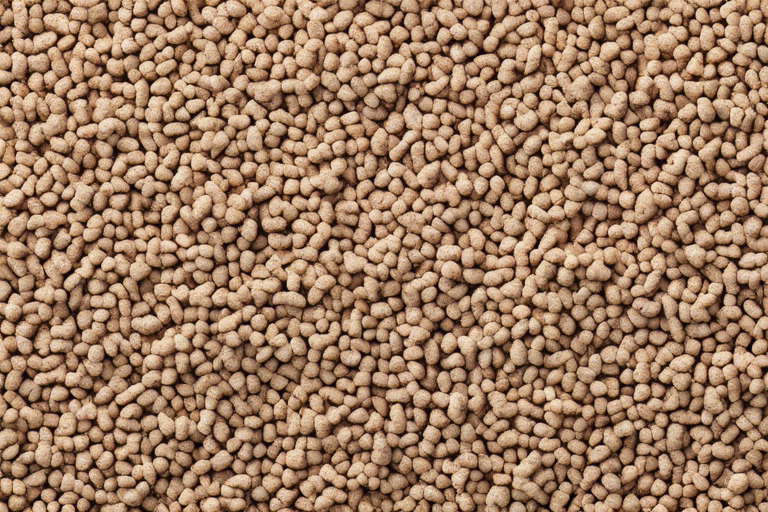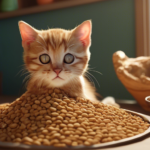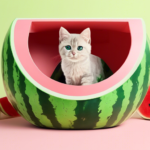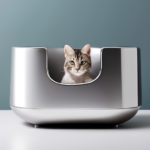Does Kitty Litter Expire? Understanding Expiration Dates and Proper Storage Techniques
## Introduction:
Cat litter is an essential item for cat owners. It helps keep the litter box clean and odor-free by absorbing urine and feces. As a responsible cat owner, you may have stocked up on kitty litter to ensure that you never run out. But have you ever wondered does kitty litter expires? In this comprehensive guide, we will explore the concept of kitty litter expiration and provide tips on how to store it properly to prolong its shelf life.
What is Kitty Litter?
Kitty litter is an absorbent material used to collect and contain the waste of cats. It can be made from various materials such as clay, silica gel, recycled paper, wood shavings, or natural substances like wheat, corn, and pine. Kitty litters come in scented or unscented varieties and can be clumping or non-clumping.
Does Kitty Litter Expire?
Yes, kitty litter does expire, but the shelf life depends on the type of litter and how it is stored. Clumping clay litter generally has a longer shelf life compared to non-clumping clay litter due to its moisture-absorbing agents that inhibit bacterial growth. On the other hand, natural litters like wood shavings and recycled paper have a shorter shelf life as they are more susceptible to moisture and bacterial contamination.
Signs of Expired Kitty Litter
It’s important to be able to recognize the signs that your kitty litter has expired. Here are some indicators to look out for:
- Strong Odor: Expired kitty litter may emit a strong odor that is different from the usual smell of the litter. This odor can be caused by bacterial growth or the breakdown of the litter material.
- Clumping Issues: Clumping litter that has expired may not clump as effectively as it used to. This can be due to the moisture-absorbing agents in the litter losing their effectiveness over time.
- Change in Color: Some litters may change color when they expire. For example, natural litters containing wood shavings may turn dark or black due to mold growth.
- Moisture: If your kitty litter feels damp or moist to the touch, it may have expired. Moisture can lead to bacterial growth and diminish the litter’s absorbency.
How to Store Kitty Litter Properly
Proper storage is key to prolonging the shelf life of your kitty litter. Follow these tips to ensure your litter remains fresh and effective:
- Keep it Dry: Moisture is the enemy of kitty litter. Store your litter in a dry place away from humidity, such as a closet or pantry. Avoid storing it in damp areas like basements or garages.
- Seal it Tightly: Once you open a bag of kitty litter, make sure to seal it tightly to prevent moisture and bacteria from entering. Use a clip or an airtight container to maintain its freshness.
- Avoid Extreme Temperatures: Extreme temperatures can affect the shelf life of kitty litter. Avoid storing it in areas that are too hot or too cold, such as near radiators or air conditioners.
- Use it before the Expiration Date: Check the expiration date on the bag of kitty litter and use it before it expires. Expired litter may have reduced effectiveness and can lead to odor and clumping issues, as well as potential health risks for your cat.
- Consider Buying in Smaller Quantities: If you have a smaller cat or only one cat, it’s worth considering buying kitty litter in smaller quantities. This will help ensure that you use the litter before it expires and reduce waste.
What Happens When Kitty Litter Expires?
When kitty litter expires, its ability to absorb urine and feces diminishes. The litter material may break down or lose its moisture-absorbing properties, making it less effective at controlling odors and maintaining cleanliness. Expired litter can also develop a strong odor and clump poorly, making it more challenging to clean the litter box.
Expired kitty litter can pose health risks to your cat. It may harbor harmful bacteria that can cause infections or illness if ingested. Therefore, it’s crucial to use fresh litter to maintain a clean and hygienic environment for your feline companion.
Conclusion:
In conclusion, kitty litter does have an expiration date, and it’s essential to store it properly to prolong its shelf life. Pay attention to signs of expiration, such as strong odors, clumping issues, color changes, and moisture. Store your litter in a dry, sealed container and avoid extreme temperatures. Always use the litter before its expiration date to ensure its effectiveness and to keep your cat’s litter box clean and odor-free.
Remember, your cat’s health and comfort depend on a clean litter box, so it’s crucial to regularly monitor the condition of the litter and replace it when necessary. By following proper storage techniques and using fresh litter, you can provide a clean and hygienic environment for your beloved feline companion.







1 thought on “Does Kitty Litter Expire? Understanding Expiration Dates and Proper Storage Techniques”